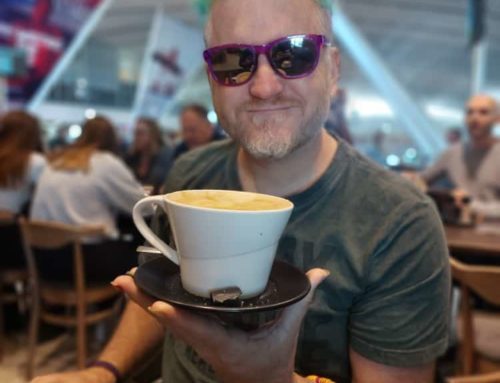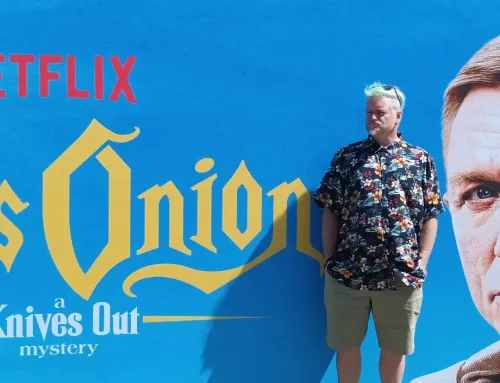i witnessed a pretty unfortunate and brutal exchange on Facebook yesterday. Unfortunate in that i know both people involved and am sure that if the three of us had sat around a table together we would have had an amazing time and the two others would very likely have become good friends. But it didn’t go down that way because there were two people who didn’t know each other, responding to only what was in front of them and needing to make judgement calls and responses based on the limited information they had on hand.
What makes it harder perhaps is that if i was either one of them, confronted with the same information, i might have come to the same conclusions – it is very hard to know beyond what we can see.
i have watched a lot of people disengage from Facebook and other forms of social media due to a similar exchange or series of exchanges and at times valuable voices have been lost [in that medium at least] or put on hold for a while, which may be necessary and healthy for that person, but which also does add that tiny bit of pressure or workload to those who are left behind – pros and cons…
i don’t particularly want to judge either of the people involved, but in the light of yet another person declaring that ‘Facebook is toxic’ i thought it might be helpful to share my view on that:
FACEBOOK IS NOT TOXIC!
Facebook is a tool. i think it’s helpful to remember that.
It can be used for good and i see that every single day – sharing stories, sharing jokes, challenging and inspiring quotes, calls to live better, catch up on family and friend news, amazing photos, accountability, helpful articles and dynamic videos, people engaging in difficult conversations and getting it, new friendships and more…
It can be used for bad and i see that pretty much most days as well – name-calling, shaming, trolling, judging, victimising, unkindness, false news spreading, fear-hyping, polarizing, just generally being a dick’ing and more.
The scary reality is that Facebook is not toxic. We are. We are what is wrong with Facebook as we are what is wrong with the world. Facebook can become a toxic environment for some, absolutely, but because of the people inhabiting that environment.
But it is so complicated and nuanced and everyone is on such a different place in their journey added to the fact that it is extremely hard to convey or read tone online and that we all have different perceptions of what is too harsh and what is too gentle and so it can feel like a bit of a minefield.
The majority of real change will, i believe, happen in and through relationships – and i have found Facebook a great place for building new friendships or at least starting them off – and so we should be focusing predominantly on doing the work with the people we know, while inviting those on the edges to draw a little closer.
We tend to be a little kinder to those we know and love. But even kind some days can need to feel challenging, painful or harsh. Hopefully where the love is not in doubt, that kindness will be experienced well.
Don’t expect Facebook to become better. It can’t. It’s a tool. But maybe each of us can try to be less of a different type of tool and aim more for kind and loving and wanting to see a nation grow for everyone.
Being ‘Kind’ to one person can mean being ‘Violent’ to another.
i think this is an important thing to get, because i think it was missing from a different hard conversation i was having yesterday.
When dealing with white people we do want to be calling them to something better, as my friend Jess articulated:
Jess Basson: Call me to something greater, call the best out of me.
Share stories with me that build empathy, that make me connect the humanity of others but also myself.
Absolutely. And my friend Jacqui, who tends to be a whole lot gentler than me all of the time poses these questions:
Jacqui Tooke: What if we can find ways to change a person’s way of seeing so they choose to live differently? And at the same time also call truth?
But i do think there is an element of ‘If only it was that simple’ to it, and i’m not sure there is [because of nuance and context and everyone being at different stages of their journey for starters] for this very reason:
If we took the same approach when it came to the apartheid government, things would never have changed. By being kind and gentle and taking our time and trying to keep things as comfortable as possible for the white people promoting and maintaining apartheid, we are by extension adding to the violence they are inflicting on their victims.
Apartheid needed to be disrupted and dismantled and nice words and feelings and reasoning and gestures were not going to get it there and so various forms of disruption were needed.
While we are not in that context any more, we are still definitely dealing with many systems, structures and mindsets left over from apartheid and while the ideal is what both Jess and Jacqui and others are suggesting, i do think there comes a time [remembering that we are 24 years into this thing – took me 20 to start seriously engaging with these things so i’m all for grace] when us being overly nice, comfortable and kind to white people makes us complicit in the violence that continues to be played out against black, coloured and indian people.
Jacqui added this piece:
Jacqui Tooke: Having said that more and more and more I am seeing what a gift the “gift of disruption” is to a community. People seldom shift if there is no need to – disruption creates that need to shift. The challenge is that we can’t guarantee in which direction the shift will take place – it can lead to entrenching/hardening of the very beliefs and attitudes we hope to disrupt – but it can open the door to a new way of seeing. I’m very interested in drawing alongside those who have been disrupted and processing the disruption in a way that leads to a new way of seeing/doing. Still have much to learn. But I know that disruption is necessary. I also know that it is not my gifting. But I know it is needed in the kingdom work. And disruption by its nature is not civil or nice or inviting; it is often hurtful and bruising and confusing. Tho I am coming to see it can be done with love.
At the end of the day, i imagine this is yet another Both/And scenario – some people seem to feel like we always need to be kind/gentle/comfortable and i’m not sure that’s helpful to everyone [it is nice for the white people, though] while some people seem to feel we need to always be strong and loud and shouty and i don’t agree with that either [although it is nice for the oppressed to hear people standing up for them] and so i really believe that on a case by case situation, we try to figure out what the best way forward is, knowing that we may get it wrong a lot as there is no blueprint or instruction manual here.
In many ways and certainly in many places [the Western Cape sadly being a very big one of those] South Africa still works for white people a lot better than it works for black, coloured and indian people. If you walk past a man punching another man in the face and simply walk on by, as far as the victim is concerned, you may as well be punching him in the face. If you speak kind and comfortable and inspiring words to the punching man and he continues punching, at some point you need to either insert yourself in the way and take the blows yourself, or you need to do what it takes to stop the man from punching [which will likely not feel comfortable, kind or inspiring].
Facebook is definitely not the best place for these things to happen. But it can and has been a good place for at the very least much of the understanding of these things to be shared and learned and acted upon.
Don’t be toxic. Use the tool well. Be the change you want to see in the country, being kind when you can, but always on the lookout for where the real violence is taking place that desperately needs to be interrupted.





![The Road to the Catan World Champs in Malta 2022! [Part II]](https://brettfish.co.za/wp-content/uploads/2022/11/IMG_9944-scaled-e1669831201283-500x383.jpg)
![The Road to the Catan World Champs in Malta 2022! [Part I]](https://brettfish.co.za/wp-content/uploads/2022/11/catanchampionships-500x383.jpg)
Leave a Reply